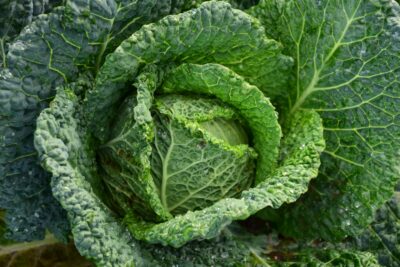Irritable Bowel Syndrome (IBS) can significantly affect daily life, but diet changes can help alleviate symptoms and promote gut health. Among the best tools for managing IBS is incorporating fiber-rich foods into your diet. This blog explores the importance of fiber, how it improves gut health, and the best high-fiber foods to include for managing IBS effectively.
Why Fiber is a Gut Health Superfood
Fiber is often underrated but plays a critical role in gut health, especially for those with IBS. Found only in plants, fiber is considered an essential nutrient—or more specifically, an essential phytonutrient—for optimal digestion. Fiber benefits the gut in two key ways:
- Softening Bowel Movements: Fiber absorbs water, making stools easier to pass and reducing constipation, a common IBS symptom.
- Balancing Gut Bacteria: Fiber acts as a prebiotic, creating an environment that supports the growth of beneficial bacteria while limiting harmful microbes.
These benefits are crucial for IBS management, as gut health is directly tied to reducing inflammation and promoting overall well-being.
Understanding Intestinal Transit Time
One key concept in gut health is intestinal transit time—the time it takes for food to move through the digestive system. Ideally, this process should take 12 to 24 hours, allowing for 2 to 4 bowel movements per day. However, for many people with IBS, this timeline is disrupted, leading to symptoms like constipation, bloating, and inflammation.
“Lingering foods,” such as meat, dairy, processed grains, and sugars, can take days to pass through the system. This delay allows harmful bacteria to thrive, producing secondary metabolites that exacerbate IBS symptoms. High-fiber foods, on the other hand, help prevent these problems by promoting regular bowel movements and reducing bacterial overgrowth.
Best High-Fiber Foods for IBS
To optimize gut health and manage IBS, aim for a diet that is at least 75% plant-based, rich in natural fiber. Here are some of the best options:
1. Sprouts and Microgreens
These nutrient-dense greens are packed with fiber and enzymes that aid digestion. Add them to salads, sandwiches, or smoothies for an easy fiber boost.
2. Broccoli and Leafy Greens
Vegetables like broccoli, kale, and spinach are high in insoluble fiber, which helps move food through the digestive system. Their fibrous texture also supports good bacteria in the gut.
3. Carrots and Celery
Crunchy vegetables like carrots and celery are rich in insoluble fiber. They’re easy to prepare and make great snacks.
4. Dark Berries
Blackberries, blueberries, and elderberries are not only high in fiber but also rich in antioxidants. These fruits can reduce inflammation while supporting gut health.
5. Avocados
Avocados are a fantastic source of both fiber and healthy fats, which can help soothe the digestive tract and reduce inflammation.
6. Nuts and Seeds
Almonds, pecans, walnuts, flaxseeds, and chia seeds provide a mix of fiber, healthy fats, and protein. Add them to meals or snacks for a nutritional boost.
7. Legumes
Lentils, beans, and peas are excellent sources of soluble fiber. They’re versatile and can be used in soups, salads, and stews.
8. Whole Grains
Quinoa, oats, and brown rice are high-fiber grains that provide slow-releasing energy while supporting gut health.
9. Root Vegetables
Turnips and beets are fibrous vegetables that promote gut health by encouraging regular bowel movements.
Hydration and Fiber: A Crucial Partnership
To maximize the benefits of fiber, it’s essential to stay hydrated. Water binds with fiber in the digestive system, helping it move through smoothly. Without enough water, fiber can cause bloating and worsen constipation. Aim for about a gallon of water per day, especially if you’re increasing your fiber intake.
How Much Fiber Do You Need?
The recommended daily fiber intake is 28 grams, but many experts suggest aiming for 40 to 50 grams, particularly for individuals managing IBS. While reaching this target may seem challenging, focusing on high-fiber foods and gradually increasing intake can help you get there. Remember, fiber from whole foods is more effective than processed fiber supplements.
Tips for Success
- Start Slow: If you’re not used to a high-fiber diet, introduce these foods gradually to avoid gas or bloating.
- Track Your Diet: Use apps like MyFitnessPal or Cara to monitor your fiber intake and identify patterns in your symptoms.
- Focus on Variety: Incorporate a wide range of high-fiber foods to ensure you get a mix of soluble and insoluble fiber.
- Consider Supplements: If needed, a high-quality fiber or protease supplement can provide additional support.
Taking Control of Your Gut Health
A fiber-rich diet is one of the most effective ways to manage IBS symptoms and improve overall gut health. By focusing on high-fiber foods, staying hydrated, and understanding your unique needs, you can take meaningful steps toward reducing inflammation and achieving better digestive health.
For personalized guidance and support, schedule a discovery call with Dr. Chanu Dasari at MGI Clinics. Our Case Studies page features stories of patients who have successfully managed their conditions through the Mind-Gut-Immunity Method.
Start Your Journey to Better Health Today
Discover the transformative power of the Mind-Gut-Immunity Method! Over the past decade, Dr. Dasari has helped countless clients reduce inflammation and find relief from autoimmune issues, often in just 3-6 weeks. Now, you can start your journey to better health with our free training. Click the link below, choose your condition, and learn how our proven approach can help you feel better fast.
About the Author
Dr. Chanu Dasari, a distinguished clinician with a career spanning renowned institutions like Vanderbilt University, Oxford University, and the University of California, has made significant contributions to medical research and practice. His work, published in top peer-reviewed scientific journals and adopted by the US Department of Health, highlights his commitment to advancing healthcare. Dr. Dasari is board-certified by the American Board of Medical Specialties and the American College of Surgeons, with a specialization in hernia repair, gallbladder removal, cysts, digestive disease, and cancer. As the founder of the Mind-Gut-Immunity Clinic, he draws from personal experience with autoimmune and digestive dysfunction to lead a team dedicated to patient-centered care using evidence-based protocols.






































































































